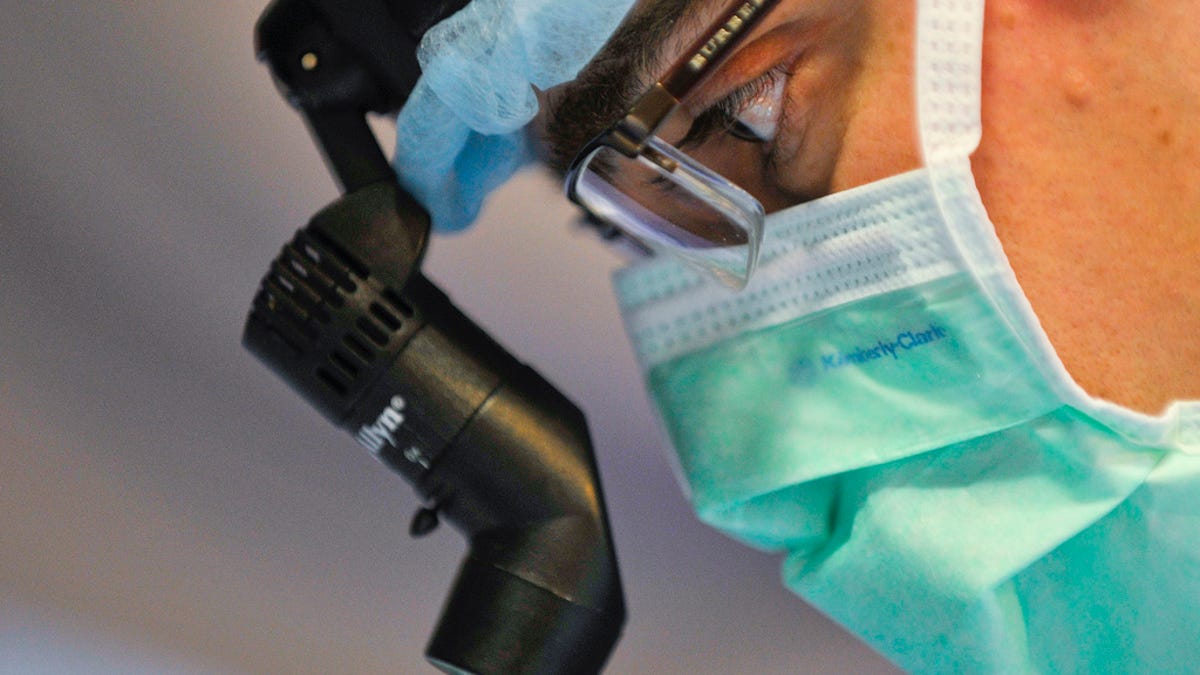Time to give surgeons breathalizers?
A study finds that excessive alcohol consumption may be associated with certain changes in surgical skill on virtual reality simulator testing the next day.
Interested in the question of whether and to what extent a surgeon's skills are impaired the day after alcohol is consumed, researchers at the Royal College of Surgeons in Ireland devised a study where alcohol flowed freely.
Their findings: those who drank the night before performed worse--especially those with less experience.
"Historically, the medical profession has had a reputation for high rates of alcohol consumption," write the authors "<="" p="" rel="noopener nofollow" class="c-regularLink" target="_blank">
"<="" p="" rel="noopener nofollow" class="c-regularLink" target="_blank">The researchers conducted two studies. In the first, they randomly assigned eight male final-year science students at Queen's University to attend a group dinner and consume alcohol freely, and randomly assigned another eight to another dinner where no alcohol was served.
"<="" p="" rel="noopener nofollow" class="c-regularLink" target="_blank">"<="" p="" rel="noopener nofollow" class="c-regularLink" target="_blank">All 16 students had already been trained via the Minimally Invasive Surgical Trainer Virtual Reality (MIST-VR) to establish baseline scores. The day following the group dinners, those who did not drink performed three tests (at 9 a.m., 1 p.m., and 4 p.m.), making image-guided small incisions on a virtual reality system, and produced no changes from their baseline. Meanwhile, those who did drink were slower and made more errors at all three times--although only at 9 a.m. were their times slow enough to be deemed statistically significant.
In the second study, the researchers had eight laparoscopic experts (already trained via MIST-VR to establish baseline scores) drink freely at a separate dinner and take the same tests at the same times the following day.
Interestingly, they performed the tasks faster at 9 a.m. compared with their baseline results, performed significantly worse during the 1 p.m. tests, and were back to baseline levels by 4 p.m.
Clearly, the researchers could have taken a more rigorous approach to both studies had they controlled alcohol intake instead of just asking participants to drink freely and had they measured blood alcohol levels instead of merely observing whether people appeared intoxicated. For instance, Reuters and others are reporting that these surgeons had hangovers, but this was not actually established.
But alcohol clearly has some level of effect on humans up to a certain number of hours after it has been consumed (breaking news, I know).
"In the two studies reported herein, we showed persistent detrimental performance effects the day after excessive alcohol had been consumed," the authors write, and suggest that, "given the considerable cognitive, perceptual, visuospatial and psychomotor challenges posed by modern image-guided surgical techniques, abstinence from alcohol the night before operating may be a sensible consideration for practicing surgeons."


